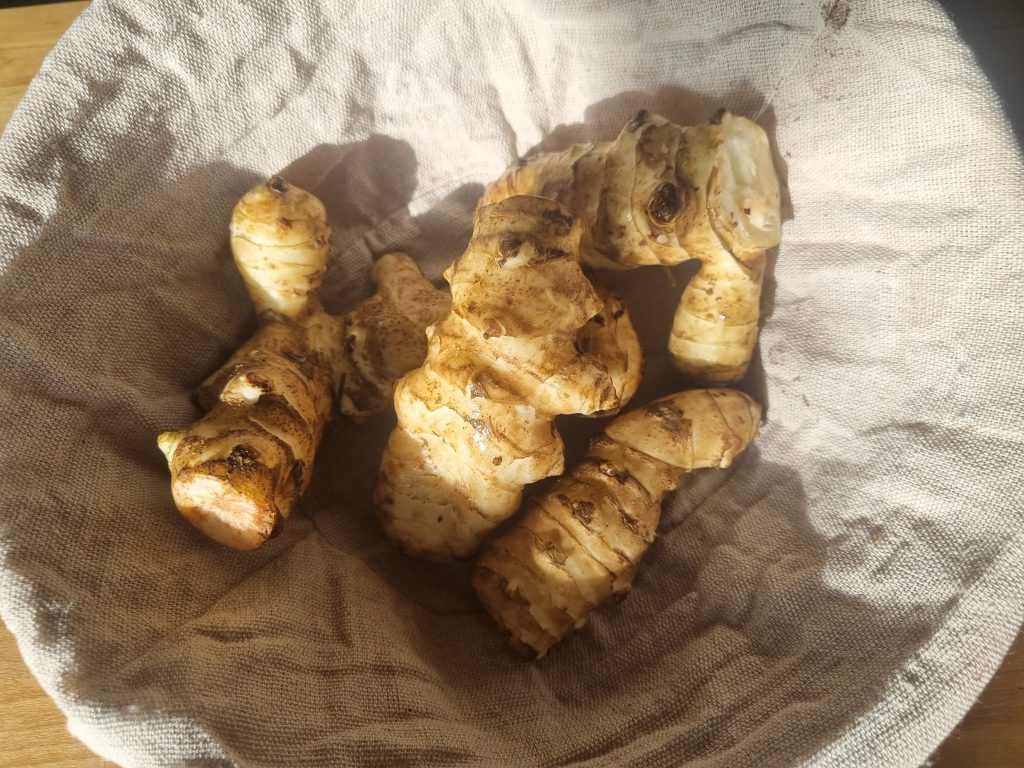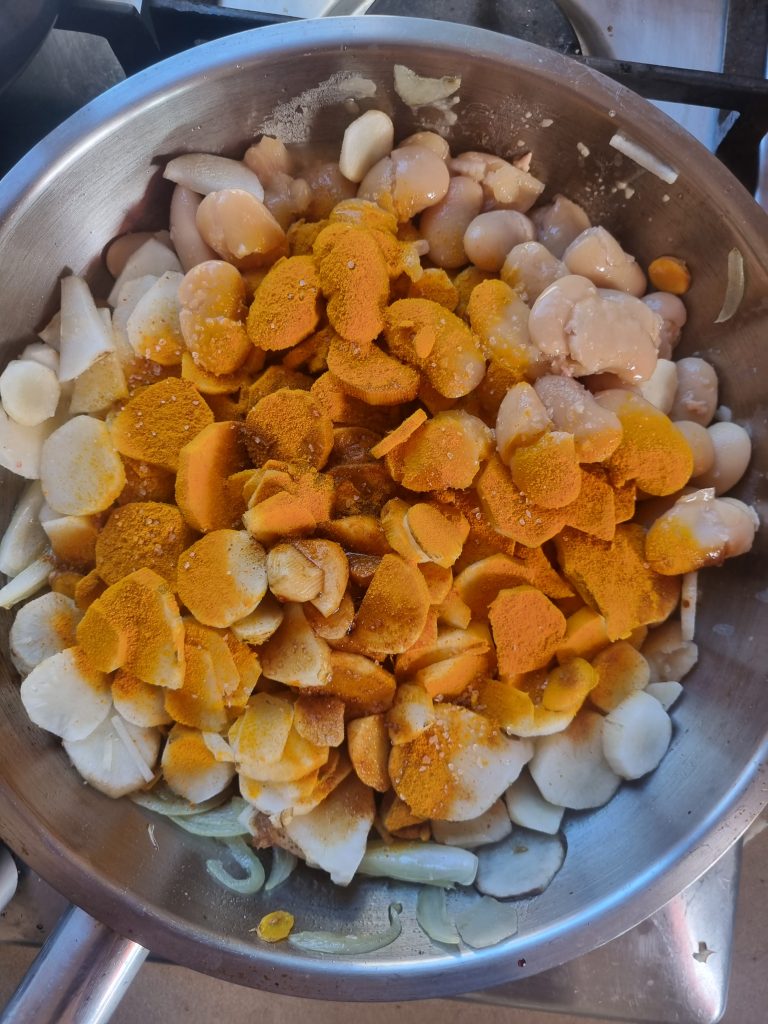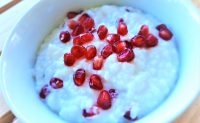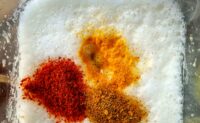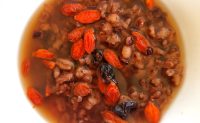Jerusalem Artichoke with White Beans and Turmeric
Eyal Shpringer
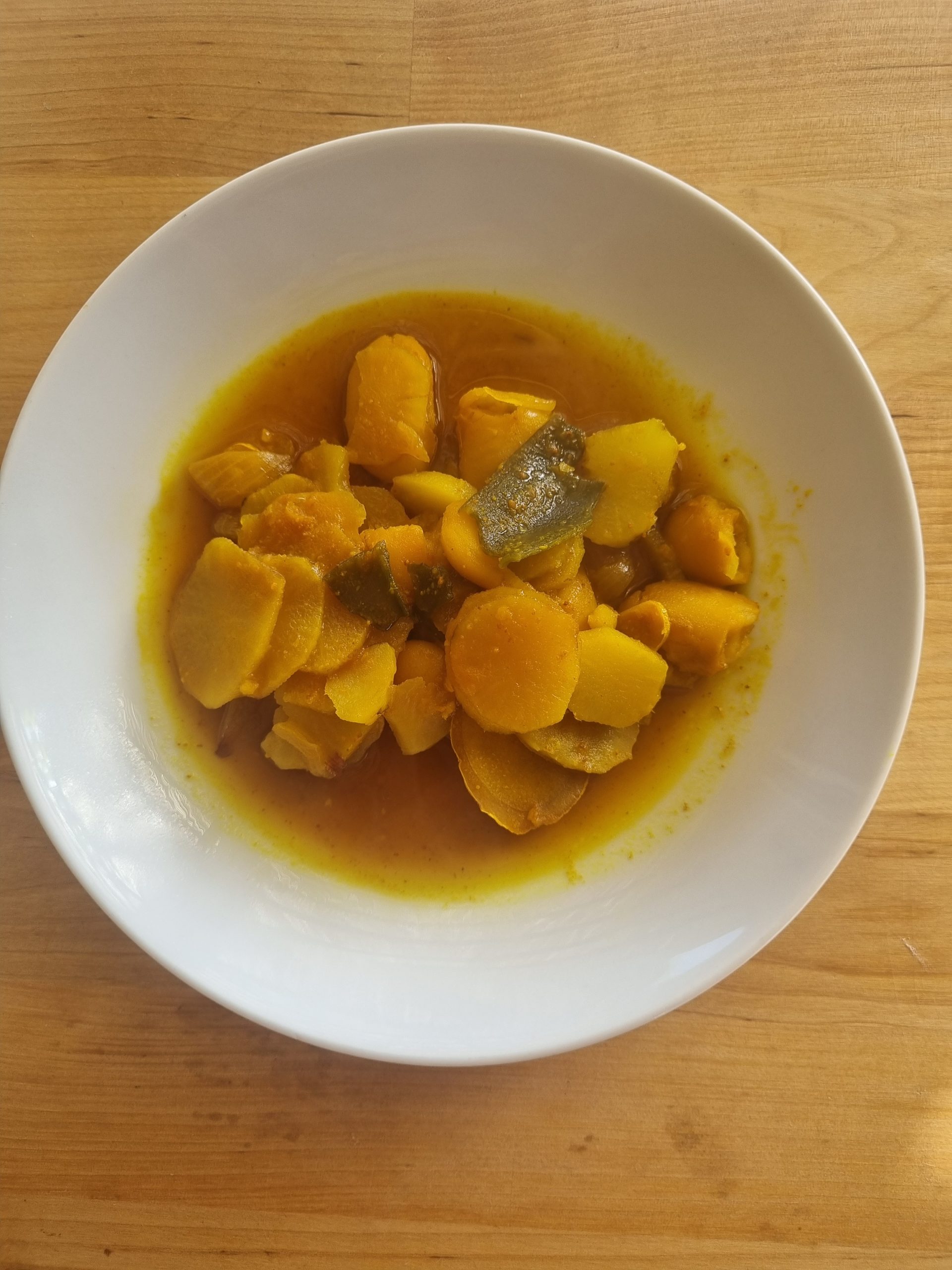
This recipe is based on Jerusalem artichoke, a vegetable with a unique aroma from the Asteraceae family that becomes available at the end of summer and in autumn.
Ingredients:
1/2 kg Jerusalem artichoke (also called Jerusalem potato), peeled and cut into large pieces
1/2 kg pre-cooked white beans (bean type can be substituted per practitioner guidance; this recipe works well taste-wise also with lima beans)
Approx. 10 ml Kombo/kelp seaweed, cut into medium pieces and soaked in water
1.5 teaspoons turmeric powder
2 teaspoons tamarind soy sauce
1 teaspoon freshly grated ginger
2 tablespoons cold-pressed sesame oil
1 cup water (can add more water during cooking)
Directions:
Stir-fry the Jerusalem artichoke and beans for 2-3 minutes in sesame oil before adding spices
Add ginger and turmeric and mix
Bring the mixture to a boil
Add kombu/kelp with soaking water and tamarind soy sauce
Cook over low heat with a lid until the artichoke is tender
Jerusalem artichoke recipe from the perspective of traditional medicine:
Most ingredients in this dish have an astringent, contracting, and drying nature. The edible part of the Jerusalem artichoke is the tuberous root. Tuberous roots have a branched structure that spreads widely in the soil in the area richest in microorganisms, fungi, worms, and insects. Tuberous roots help stabilize the soil and create different relationships of competition or cooperation with the surrounding lifeforms.
In traditional medicines, tuberous roots from various plant families are used to stabilize different aspects of the “earth” element and treat the “earth-organs” located in the body’s core. Among the best-known tuberous roots that balance the “earth element are the Jerusalem artichoke, turmeric, ginger, and galangal.
This dish is especially suitable for patients suffering from excess phlegm due to turmeric’s drying and cleansing effects and the additional drying contributed by the other ingredients. The Jerusalem artichoke is characterized by a high content of inulin—a sweet-tasting dietary fiber with a low glycemic index. Inulin gives the Jerusalem artichoke an “earthy” taste similar to that of the potato but with a much lower caloric and sugar content. Additionally, the inulin in this vegetable acts as a prebiotic that supports a healthy gut microbiome.
This recipe may be appropriate for diabetes patients due to the combination of turmeric, Jerusalem artichoke, and beans, all of which have a hypoglycemic effect through different mechanisms. Individuals with sensitive digestion, gas, bloating, and abdominal pain should abstain from this dish.
Eyal Shpringer is a Chinese medicine practitioner and a clinical herbalist specializing in Chinese nutrition and traditional nutritional approaches. Eyal holds a master’s degree in research of East Asian medicines. Since 2007, he has been teaching a postgraduate training program in Chinese and oriental nutrition according to the TEF method and other courses and workshops for practitioners. Eyal co-authored the bestselling book Cooking for Life: A Traditional Nutrition Cookbook for Cancer Patients (Hebrew).
Did you find the recipe interesting? Do you want to continue studying with me?
You are invited to join me on my Instagram page and the Traditional Nutrition and Medicine Facebook group.
